Citizen X
You’ve quoted me multiple times, often twisting my words or responding with sarcasm, which sadly shuts down any meaningful exchange. You insist that Hadith is nothing more than unreliable hearsay compiled by "Irani mullahs" centuries later. That narrative is both historically inaccurate and dismissive of over
1400 years of Islamic scholarly tradition.
Yes, Hadith were compiled after the Prophet ﷺ's death — just like the Quran was compiled into book form later. But that doesn't mean they were invented. The
companions of the Prophet ﷺ memorized and transmitted his sayings and actions long before collections like Bukhari and Muslim existed. The Hadith sciences (Isnad, Rijal, Matn criticism) were developed specifically to
prevent fabrication, not promote it.
Also, your repeated analogy of “Bablu heard from Dabbu” mocks the chain of transmission, yet you fail to acknowledge how
secular historians also rely on eyewitness chains — and no other civilization developed anything as rigorous as Islamic isnad methodology.
And yes, Hadith is not on the same level as the Quran. That’s something I
already said: the Quran is
divine revelation and
fully protected; Hadith is
secondary and
subject to scrutiny. But “secondary” doesn’t mean “scrap it entirely.”
Your tone, unfortunately, often turned insulting (“pooja paat,” “emotional mushrik,” etc.). This is precisely why meaningful discussions are nearly impossible in such
charged and aggressive mindsets. Ironically, this behavior contradicts the
very Quran you claim to uphold, which commands dialogue with “hikmah and beautiful preaching” (Quran 16:125).
observer-x
You started this thread with a sarcastic summary of Quranist/Parwezi beliefs — that’s your right — but you’ve since joined in targeting anyone who attempts to bring balance or defend traditional scholarship.
When I said “Quran gives the message, Hadith gives context,” you and others mocked it — but even the Quran says:
“We have revealed to you the Reminder (Quran), that you may explain to people what was sent down...” (Quran 16:44)
That explanation came through the
Messenger ﷺ, not just in theory but in his
lived example. That's what Hadith preserves. You don’t have to agree with every Hadith — but dismissing all of it outright because of a few controversial narrations is as irrational as rejecting all medicine because of a few expired pills.
If you believe in open dialogue, you should allow views to be challenged respectfully — not with mockery and labels like “Parwezi” used as slurs. Ironically, in trying to fight “mushrik rituals,” you’re using
the same tactics you accuse others of: gatekeeping Islam.
Wake up Pak
You asked:
“Where did you get this notion from?” in response to my statement: “Quran gives the message, Hadith gives context.”
Fair question. The answer is:
from the Quran itself. As mentioned above (16:44), the Prophet ﷺ was not only the recipient of revelation, but also its
teacher and practical guide. Without Hadith, you would have no way to know:
- How to perform Salah,
- How to calculate Zakah,
- Or even how to understand rulings that depend on context.
No classical scholar in the history of Islam — Sunni, Shia, or even Zahiri — ever said, “We don’t need Hadith.” That idea is
modern, reactionary, and often rooted in
frustration with clerical abuse, not the religion itself.
The Quran is undoubtedly
complete,
perfect, and
fully sufficient for guidance. But we must understand what “complete” means in context: it means the Quran
contains everything necessary for guidance, not necessarily
every minute detail of every practice.
Here’s the question:
If a book alone was enough, then why did Allah send Messengers at all? Why not just drop the scripture from the sky and expect people to follow it on their own?
The answer lies in the
wisdom of divine guidance — people need a
living, human example to understand, apply, and internalize that message in real life. That’s why the Quran repeatedly tells us:
“We have never sent a messenger except in the language of his people to make the message clear to them.” (Quran 14:4)
“He who obeys the Messenger has obeyed Allah.” (Quran 4:80)
“Indeed, in the Messenger of Allah you have a beautiful example...” (Quran 33:21)
The Prophet ﷺ didn’t just
deliver the Quran — he
demonstrated how to live by it. Without Hadith, how would we know
how to pray,
what breaks your fast, or even
what was meant in many verses that were revealed in specific contexts?
So yes — the Quran is the
final authority, and Hadith is
not its competitor. But it is a necessary
companion that preserves the
actions, clarifications, and practical application of the one who lived the Quran.
Denying all Hadith because “the Quran is complete” is like saying a
recipe book is complete so we don’t need a chef — but then still wondering why your dish didn’t turn out right.
The problem begins when people
compare the Quran and Hadith side-by-side, as if they are
two versions of the same thing. But they’re not — and
no serious scholar has ever said they are equal.
Here’s the distinction:
 Quran is the literal word of Allah, revealed directly to Prophet Muhammad ﷺ, protected by divine promise (15:9). It’s the source of Islamic belief, law, and guidance. It is unquestionable, unchangeable, and the final authority in all matters.
Quran is the literal word of Allah, revealed directly to Prophet Muhammad ﷺ, protected by divine promise (15:9). It’s the source of Islamic belief, law, and guidance. It is unquestionable, unchangeable, and the final authority in all matters. Hadith is the record of the Prophet’s ﷺ words, actions, and approvals. It’s not divine speech — it’s the explanation and practical application of divine speech, passed down through verified chains of narration - with element of human error.
Hadith is the record of the Prophet’s ﷺ words, actions, and approvals. It’s not divine speech — it’s the explanation and practical application of divine speech, passed down through verified chains of narration - with element of human error.
To all three of you — I sincerely respect your passion. But I humbly ask: if your goal is to present the Quran as the final and pure source of guidance,
your conduct must reflect its teachings too.
Adab (respect), Ikhlaq (good character), and humility are also parts of Deen. If we can’t discuss matters of faith without sarcasm, ridicule, and name-calling, then we’ve already lost the spirit of the very book we claim to defend.
I’m here for
dialogue, not drama. And I’m happy to continue if we keep things civil and rooted in evidence — not emotion.
That said, perhaps the real lesson for me is this:
I should never have indulged in religious discussions on a political forum — especially where people are already so emotionally and ideologically charged. It rarely leads to understanding, and often just reinforces echo chambers.
Still, I wish you all well — may Allah guide us all toward truth with humility. Ameen.






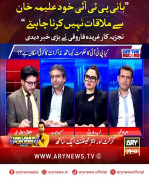
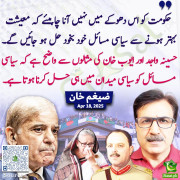
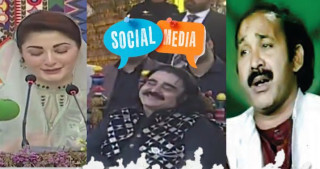
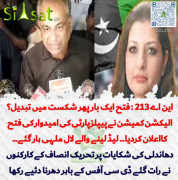

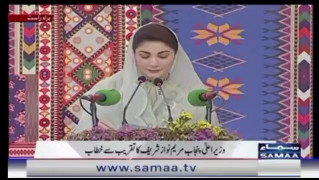














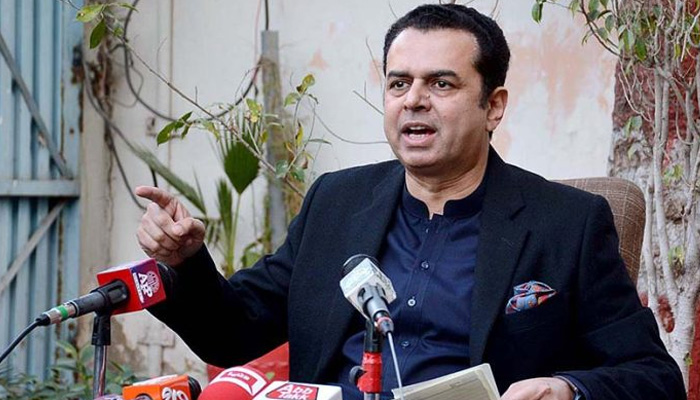

.png?Expires=1839520194&Key-Pair-Id=K2ZIVPTIP2VGHC&Signature=a1IfOw7rPLsPwduCLC0E7FdRDbq6Mf8WvfJEpctWRESM-2do0Ie1M77Zr6otd6UwIwQx4WrcuwUoI3FwGpkkYInKjNB4stohYD8LCpw0jZlhYr1sJejuv3z3DglJv72xZeEHyp2BrcC9aFdmY5uIJkfnEnSauR07cxOQ3e4YJcF5~OfEJZAwytwJUIP2uzyxMtMi2wny8qvmWd1dsnmU9PmneSRQKTDu9SRpJcQW46uv-mhgOstiigfC5hAOdZLngiQ1aygUuNqY8cLdqDNLh9UeV-yRw~XfXS1pFQbxA1vXOY0JKYOtl2RH4OLy6pw531nKMZu16v5veBjZzVGJJQ__)






